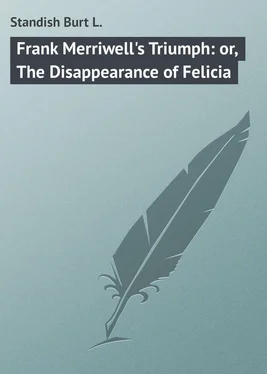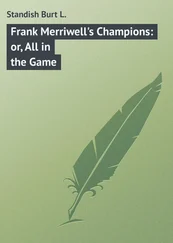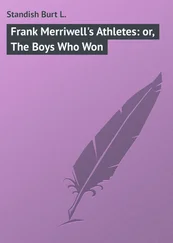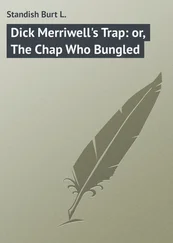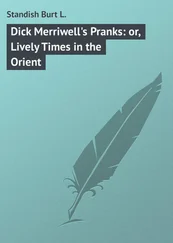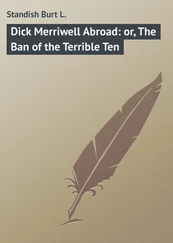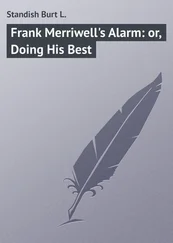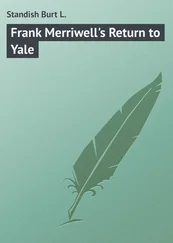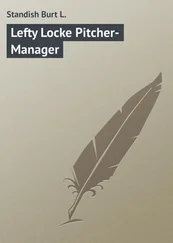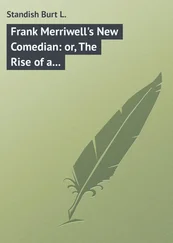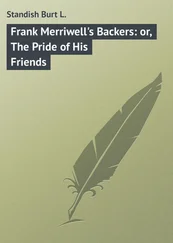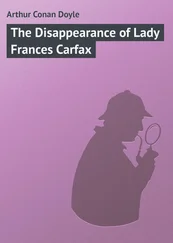Burt Standish - Frank Merriwell's Triumph - or, The Disappearance of Felicia
Здесь есть возможность читать онлайн «Burt Standish - Frank Merriwell's Triumph - or, The Disappearance of Felicia» — ознакомительный отрывок электронной книги совершенно бесплатно, а после прочтения отрывка купить полную версию. В некоторых случаях можно слушать аудио, скачать через торрент в формате fb2 и присутствует краткое содержание. Издательство: Иностранный паблик, Жанр: foreign_prose, foreign_adventure, на английском языке. Описание произведения, (предисловие) а так же отзывы посетителей доступны на портале библиотеки ЛибКат.
- Название:Frank Merriwell's Triumph: or, The Disappearance of Felicia
- Автор:
- Издательство:Иностранный паблик
- Жанр:
- Год:неизвестен
- ISBN:нет данных
- Рейтинг книги:4 / 5. Голосов: 1
-
Избранное:Добавить в избранное
- Отзывы:
-
Ваша оценка:
- 80
- 1
- 2
- 3
- 4
- 5
Frank Merriwell's Triumph: or, The Disappearance of Felicia: краткое содержание, описание и аннотация
Предлагаем к чтению аннотацию, описание, краткое содержание или предисловие (зависит от того, что написал сам автор книги «Frank Merriwell's Triumph: or, The Disappearance of Felicia»). Если вы не нашли необходимую информацию о книге — напишите в комментариях, мы постараемся отыскать её.
Frank Merriwell's Triumph: or, The Disappearance of Felicia — читать онлайн ознакомительный отрывок
Ниже представлен текст книги, разбитый по страницам. Система сохранения места последней прочитанной страницы, позволяет с удобством читать онлайн бесплатно книгу «Frank Merriwell's Triumph: or, The Disappearance of Felicia», без необходимости каждый раз заново искать на чём Вы остановились. Поставьте закладку, и сможете в любой момент перейти на страницу, на которой закончили чтение.
Интервал:
Закладка:
Standish Burt L.
Frank Merriwell's Triumph; Or, The Disappearance of Felicia
CHAPTER I.
A COMPACT OF RASCALS
They were dangerous-looking men, thirty of them in all, armed to the teeth. They looked like unscrupulous fellows who would hesitate at no desperate deed. Some of them had bad records, and yet they had served Frank Merriwell faithfully in guarding his mine, the Queen Mystery, against those who tried to wrest it from him by force and fraud.
Frank had called these men together, and he now stood on his doorstep in Mystery Valley, Arizona, looking them over. Bart Hodge, Frank’s college chum and companion in many adventures, was behind him in the doorway. Little Abe, a hunchback boy whom Merriwell had rescued from ruffians at a mining camp and befriended for some time, peered from the cabin. Merry smiled pleasantly as he surveyed the men.
“Well, boys,” he said, “the time has come when I shall need your services no longer.”
Some of them stirred restlessly and looked regretful.
“To tell you the truth,” Frank went on, “I am genuinely sorry to part with you. You have served me well. But I need you no more. My enemies have been defeated, and the courts have recognized my rightful claim to this property. You fought for me when it was necessary. You risked your lives for me.”
“That’s what we is paid for, Mr. Merriwell,” said Tombstone Phil, the leader. “We tries to earn our money.”
“You have earned it, every one of you. I remember the day we stood off a hundred painted ruffians in the desert; I remember the hunting of Jim Rednight; and I don’t forget that when Hodge and I stood beneath a tree near Phœnix, with ropes about our necks, that you charged to the rescue and saved us. Have I paid you in a satisfactory manner?”
“Sure thing!”
“You bet!”
“That’s whatever!”
“You don’t hear us kick any!”
“We’re satisfied!”
These exclamations were uttered by various men in the gathering.
“I am glad to know, boys,” declared Frank, “that you are all satisfied. If you must leave me, I like to have you leave feeling that you have been treated on the square.”
“Mr. Merriwell,” said Mexican Bob, a wizened little man, “I ken chew up the galoot what says you ain’t plumb on the level. Thar’s nary a critter in the bunch whatever makes a murmur about you.”
“You can see, boys,” Frank went on, “that I have no further use for you as a guard to my property. If any of you wish to remain, however, I shall try to find employment for you. There’s work enough to be done here, although it may not be the sort of work you care to touch. I need more men in the mine. You know the wages paid. It’s hard work and may not be satisfactory to any of you.”
The men were silent.
“As we are parting,” Merry added, “I wish to show my appreciation of you in a manner that will be satisfactory to you all. For that purpose I have something to distribute among you. Hand them out, Hodge.”
Bart stepped back and reappeared some moments later loaded down with a lot of small canvas pouches.
“Come up one at a time, boys,” invited Merry, as he began taking these from Bart. “Here you are, Phil.”
He dropped the first pouch into Tombstone Phil’s hand, and it gave forth a musical, clinking sound that made the eyes of the men sparkle.
One by one they filed past the doorstep, and into each outstretched hand was dropped a clinking canvas pouch, each one of which was heavy enough to make its recipient smile.
When the last man had received his present, they gathered again in front of the door, and suddenly Tombstone Phil roared:
“Give up a youp, boys, for the whitest man on two legs, Frank Merriwell!”
They swung their hats in the air and uttered a yell that awoke the echoes of the valley.
“Thanks, men,” said Merry quietly. “I appreciate that. As long as you desire to remain in Mystery Valley you are at liberty to do so; when you wish to depart you can do so, also. So-long, boys. Good luck to you.”
He waved his hand, and they answered with another sharp yell. Then they turned and moved away, declaring over and over among themselves that he was the “whitest man.” One of those who repeated this assertion a number of times was a leathery, bowlegged, bewhiskered individual in greasy garments known as Hull Shawmut. If anything, Shawmut seemed more pleased and satisfied than his companions.
The only one who said nothing at all was Kip Henry, known as “the Roper,” on account of his skill in throwing the lariat. Henry was thin, supple, with a small black mustache, and in his appearance was somewhat dandified, taking great satisfaction in bright colors and in fanciful Mexican garments. He wore a peaked Mexican hat, and his trousers were slit at the bottom, Mexican style. Several times Shawmut glanced at Henry, noting his lack of enthusiasm. When the Thirty retired to their camp down the valley and lingered there, Henry sat apart by himself, rolling and smoking a cigarette and frowning at the ground.
“What’s the matter, pard?” asked Shawmut, clapping him on the shoulder. “Didn’t yer git yer little present?”
“Yes, I got it,” nodded the Roper.
“Then what’s eating of yer?”
“Well, Shawmut, I am a whole lot sorry this yere job is ended. That’s what’s the matter. It certain was a snap.”
“That’s right,” agreed Kip, sitting down near the other. “We gits good pay for our time, and we works none to speak of. It certain was a snap. Howsomever, such snaps can’t last always, partner. Do you opine we’ve got any kick coming?”
“The only thing I was a-thinking of,” answered Kip, “is that here we fights to keep this yere mine for him, we takes chances o’ being called outlaws, and – now the job is done – we gits dropped. You knows and I knows that this yere mine is a mighty rich one. Why don’t we have the luck to locate a mine like that? Why should luck always come to other galoots?”
“I ain’t explaining that none,” confessed Shawmut, as he filled his pipe. “Luck is a heap singular. One night I bucks Jimmy Clerg’s bank down in Tucson. I never has much luck hitting the tiger, nohow. This night things run just the same. I peddles and peddles till I gits down to my last yeller boy. If I loses that I am broke. I has a good hoss and outfit, and so I says, ‘Here goes.’ Well, she does go. Jim’s dealer he rakes her in. I sets thar busted wide. When I goes into that place I has eight hundred in my clothes. In less than an hour I has nothing.
“Clerg he comes ambling along a-looking the tables over. I sees him, and I says: ‘Jim, how much you let me have on my hoss and outfit?’ ‘What’s it wurth?’ says he. ‘Three hundred, cold,’ says I. ‘That goes,’ says he. And he lets me have the coin. Then I tackles the bank again, and I keeps right on peddling. Yes, sir, I gits down once more to my last coin. This is where I walks out of the saloon on my uppers. All the same, I bets the last red. I wins. Right there, Kip, my luck turns. Arter that it didn’t seem I could lose nohow. Pretty soon I has all the chips stacked up in front of me. I cashes in once or twice and keeps right on pushing her. I knows luck is with me, and I takes all kinds o’ long chances. Well, pard, when I ambles out of the place at daylight the bank is busted and I has all the ready coin of the joint. That’s the way luck works. You gits it in the neck a long time; but bimeby, when she turns, she just pours in on yer.”
“But it don’t seem any to me that my luck is going to turn,” muttered the Roper.
“Mebbe you takes a little walk with me,” said Shawmut significantly. “Mebbe I tells you something some interesting.”
Читать дальшеИнтервал:
Закладка:
Похожие книги на «Frank Merriwell's Triumph: or, The Disappearance of Felicia»
Представляем Вашему вниманию похожие книги на «Frank Merriwell's Triumph: or, The Disappearance of Felicia» списком для выбора. Мы отобрали схожую по названию и смыслу литературу в надежде предоставить читателям больше вариантов отыскать новые, интересные, ещё непрочитанные произведения.
Обсуждение, отзывы о книге «Frank Merriwell's Triumph: or, The Disappearance of Felicia» и просто собственные мнения читателей. Оставьте ваши комментарии, напишите, что Вы думаете о произведении, его смысле или главных героях. Укажите что конкретно понравилось, а что нет, и почему Вы так считаете.
